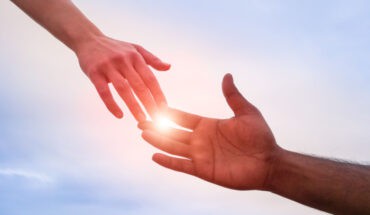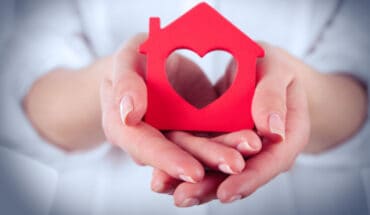I am an executive coach and an author of a book called ‘Rocking Your Role’ which is a guide to success for women who are the main earner at home and a leadership trainer. When I was asked to be a part of this panel I thought what do I have to say about coercive control and how does that fit in to what I do? Researching my book, interviewing women all over the world who were the main earner in their home, one particular incident always stays in my mind. A woman in America who said ‘I was the main earner for three years and those were dark days in my life’ and then she went on to explain how her relationship broke up.
Now so many women when I speak to them say to me ‘I wish I had spoken to you before. I wish I had thought about the dynamic of being the main earner and how that was impacting my relationship and impacting my life’. When I did the research, what I found was that in places like Turkey and Africa where men are supposed to be the main earner, it’s an affront to your manhood when the woman is the main earner. This can lead to an increase in domestic abuse and coercive control and actually some of the research that I have read is actually saying ‘you’re being sinful by being the main earner’.
Is may be better to be earning and bringing an income into your household but actually often women can be penalised for this. What the research actually shows even in cultures that are not so traditional, like in the US, there is an increase in domestic abuse when the woman is the main earner.
What the research actually shows even in cultures that are not so traditional, like in the US, there is an increase in domestic abuse when the woman is the main earner.
When I first started looking at this topic of female breadwinners, five years ago, it was about a fifth of mums in the UK who were the main earner, now it is a third, so it’s now an increase. So if society is changing, it also means that there is a likelihood that there is an increase in domestic violence for those women if they are in a relationship. So it is quite frightening to think about this especially when we look at the data around education, that more women are getting degrees than men now, when we look at the younger age groups. So more women are earning degrees and studying at university which means that it is more likely that they are going to earn more, which means that it is more likely that they are going to be the main earner, which means that actually there is an increase that they might experience domestic violence.
If we do not think about these issues and about what we need to do to help men understand that actually it’s not the worst thing if your partner earns more. I think probably we need to start with fairy tales you know all of those stories we were told as young men and women about the role of men and women you know, men coming along on their white horse and rescuing these damsels. That’s probably not what it’s going to be like actually women may be rescuing men or we may be rescuing each other and I think it starts quite early that we need to be thinking about these roles of earning, of being in relationships. We need to not see it as an affront or an issue around ego if this happens. So many of the women I’ve interviewed were dialing themselves down, were feeling shame, guilt, resentment about being the main earner and actually not being able to celebrate their role.
If your partner keeps asking you to hide that you’re the main earner, or lie or behave as the homemaker when you’re out doing all the work, I think that’s a form of coercive control.
If your partner keeps asking you to hide that you’re the main earner, or lie or behave as the homemaker when you’re out doing all the work, I think that’s a form of coercive control.
It shouldn’t have to be that way and what I also realised when I was doing the research was that financial abuse was rife. Women can be the people doing it just like men. If you are the main earner, you could be withholding money from your partner and monitoring how finances are used. So in that way it can happen.
One of the case studies there was a woman who earned but not as much as her partner, but he would withhold the money. He didn’t want her to go and buy things. Withholding meant that they couldn’t have any luxuries, they couldn’t have any treats and it meant that for him, he had some control of the relationship. So it doesn’t always look like physical abuse but it could be psychological and that you are punishing your partner in some way.
I don’t think there are any easy answers at all. One of the things I do think we should embrace which may be a little bit controversial is that I think we need to get a bit more angry. Too often we accept, either because we’ve seen in the media or in our homes, behaviour that is not acceptable. Having a bit of anger can really be channelled into activism and positive action and make things happen. I have a social enterprise for working in teams which supports 13-14 year olds and that came about because I was angry that my daughter in year 8 started dumbing herself down to fit in and was very influenced by social media and had decided that how she looked wasn’t okay. I was really angry that actually living in a home with very positive parents hadn’t made a difference and that lead me to actually co-founding this organisation.
What can anger empower you to do? There is a woman called Betty Makoni, she is involved in the ‘Defender of Girls’ and her movement supporting girls came about because she was raped at the age of six and she lost her mother to domestic violence. But actually she’s turned this into a powerful movement for change. Imagine if so many people hadn’t been angry enough to make a difference, where would we be? We wouldn’t have had the suffrage movement; we wouldn’t be able to vote. So this idea of being angry is one I’d like you to hold when told at school to be good girls, to accept things and not to cause a fuss, but actually if we were a bit more angry, maybe change would be accelerated.
Jenny Garrett was speaking at the launch of the Cairn Youth Network at the House of Lords earlier this month.
- Rocking your role – women as the bread winners - 19th September 2018







